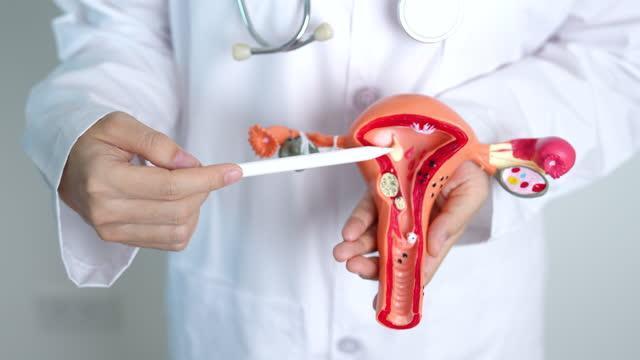Unlocking the Secrets of Hormones: A Comprehensive Guide to Understanding PCOS
Unlocking the Secrets of Hormones: A Comprehensive Guide to Understanding PCOS
Polycystic ovary syndrome (PCOS) affects millions of women worldwide, making it a subject of considerable interest and concern. This complex endocrine disorder can have significant implications for reproductive health, hormonal balance, and overall well-being. In this comprehensive guide, we delve into the depths of PCOS to provide a deeper understanding of its causes, symptoms, diagnosis, treatment options, and lifestyle modifications. So, let's embark on a journey to unlock the secrets of hormones and gain insight into PCOS.
Understanding PCOS
We begin by unraveling the intricate web of PCOS, exploring its underlying causes, which involve a combination of genetic, hormonal, and lifestyle factors. We delve into the hormonal imbalances that occur in PCOS, focusing on elevated levels of androgens (male hormones), insulin resistance, and the role of the ovaries.
Signs and Symptoms
Recognizing the signs and symptoms of PCOS is crucial for early detection and timely intervention. We outline the common manifestations of PCOS, such as irregular menstrual cycles, excessive hair growth (hirsutism), acne, weight gain, and fertility challenges. By understanding these symptoms, individuals can seek appropriate medical attention and guidance.
Diagnosis and Medical Interventions
Accurate diagnosis is essential for effective management of PCOS. We discuss the various diagnostic criteria employed by healthcare professionals, which typically involve a combination of medical history, physical examinations, and laboratory tests. Additionally, we shed light on medical interventions commonly used to alleviate PCOS symptoms, including hormonal contraceptives, anti-androgen medications, and insulin-sensitizing agents.
Lifestyle Modifications
Complementing medical interventions, lifestyle modifications play a pivotal role in managing PCOS. We delve into the significance of maintaining a healthy weight through proper nutrition and regular exercise, as weight loss has shown to improve symptoms and hormonal imbalances. Additionally, we explore the impact of stress reduction techniques, adequate sleep, and adopting a well-rounded self-care routine.
Fertility and Pregnancy
For many women with PCOS, fertility can be a significant concern. In this section, we discuss the challenges and potential treatments for improving fertility in PCOS. We explore the role of ovulation induction medications, assisted reproductive technologies, and lifestyle modifications that may enhance chances of conception. Furthermore, we provide guidance on managing PCOS during pregnancy, ensuring a healthy gestational period for both mother and baby.
Holistic Approaches
In recent years, there has been increasing interest in complementary and alternative approaches to managing PCOS. We examine the potential benefits of dietary changes, herbal supplements, acupuncture, and other natural therapies in improving hormonal balance and reducing PCOS symptoms. However, it is important to approach these options with caution and seek guidance from healthcare professionals.
Polycystic ovary syndrome is a multifaceted endocrine disorder that requires comprehensive understanding and management. By exploring the causes, symptoms, diagnosis, treatment options, and lifestyle modifications associated with PCOS, individuals can take proactive steps towards better health and well-being. With the right knowledge, support, and a multidisciplinary approach, it is possible to navigate the complexities of PCOS and achieve hormonal harmony.
Be the first to post a message!
